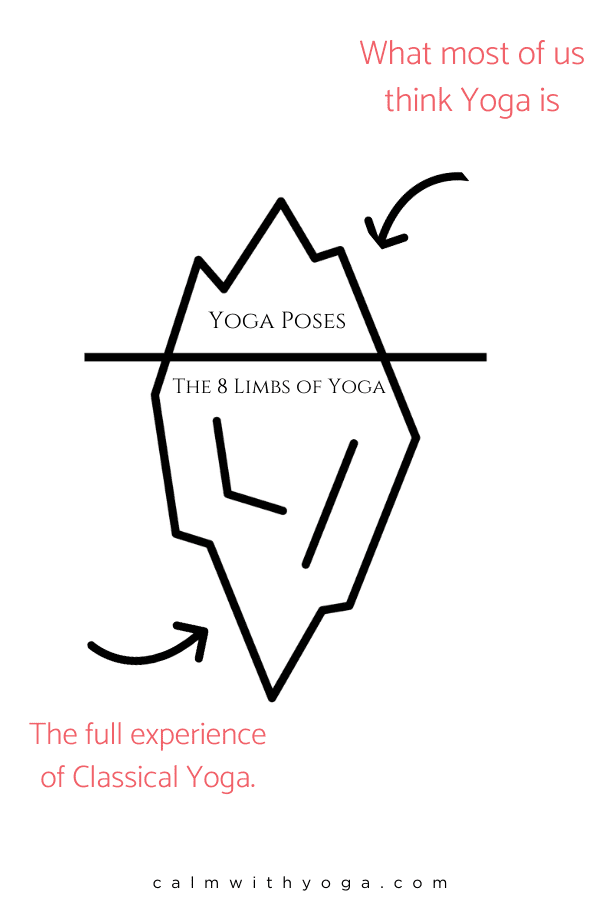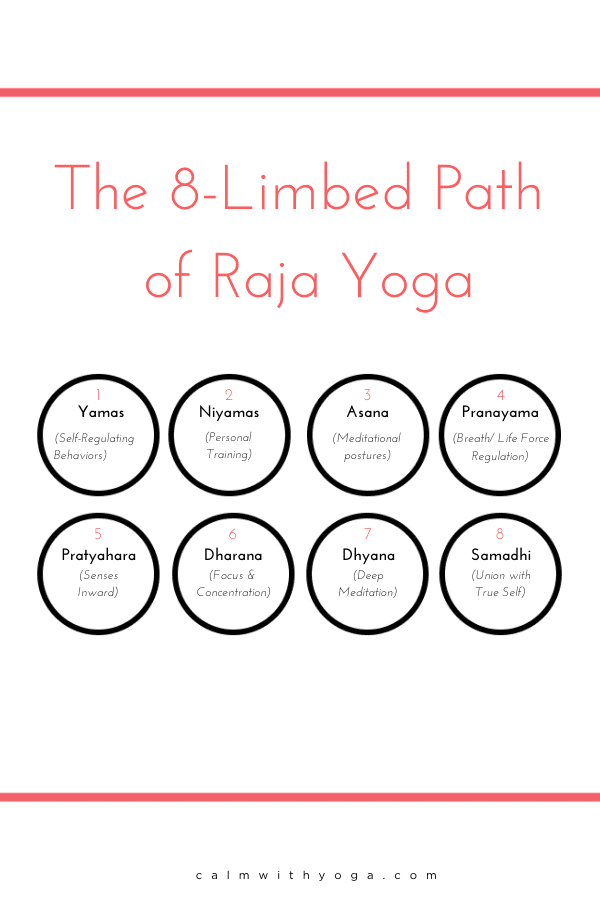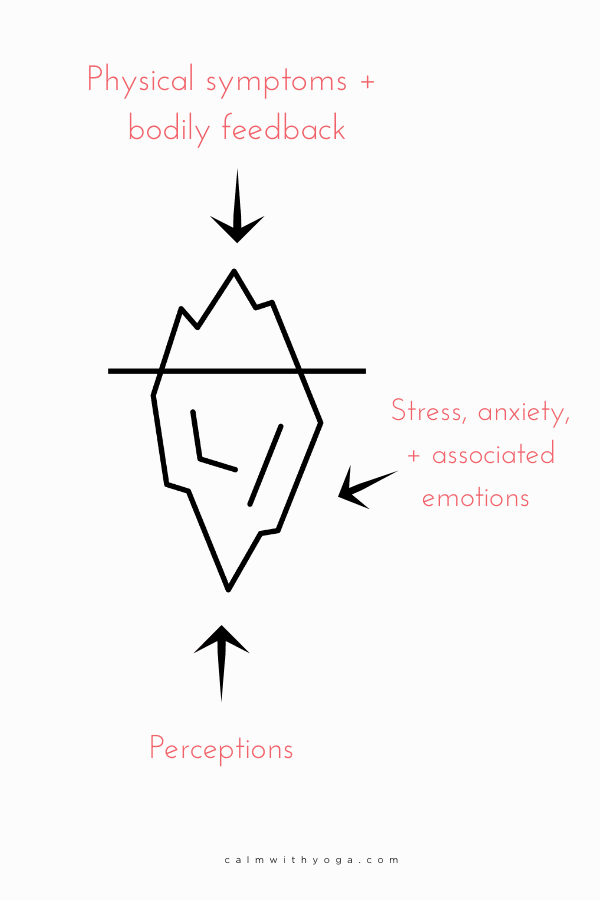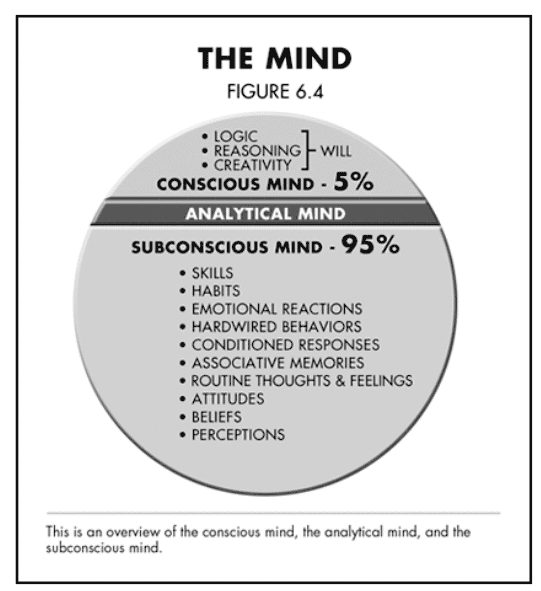If you have a bad telecommunication system, your body gets sick. Yoga helps fix that. – Bikram Choudhury, yoga teacher A few years ago I was diagnosed with an inflammatory bowel condition. My immune system was on overdrive and attacking its own body’s tissues. This diagnosis was a wakeup call. It really rattled my sense of self. All of a sudden, I had to get used to the idea that I now had this chronic condition I’d be living with ‘for the rest of my life’ as my doctor said. The good news is that this diagnosis was also the catalyst to embark on a physical, mental, and emotional healing journey. To heal means to become whole. The classic definition of Yoga is union and connection. Pretty similar, right? I had a hunch that much of my healing would come about as a result of deepening my yoga practice. I discovered unexpected aspects and benefits of yoga that went beyond the asanas (yoga poses.) The physical aspect of yoga was what I was most familiar with; it’s where my sadhana (practice) began.
It wasn’t until I got really sick that I dove deeper into other aspects beyond the yoga mat. Here’s what I learned:
Did you know that you can practice yoga by breathing?
Pranayama is yogic breathwork and the 4th of 8 Limbs of Classical Yoga. These 8 Limbs of Yoga offer us a framework for healing.
Believe it or not, just a few minutes of deep, conscious belly breaths is enough to soothe your nervous system and boost immunity by increasing white blood cell count. Pair a regular pranayama practice with immune-boostingand thymus gland activating poses like backbends, bridge poses, and legs up the wall pose and you’ve got a winning combo. Child’s pose and savasana are also great for nurturing the body back to health and wholeness. This is also helpful if you’re dealing with a common cold, stuffy nose, runny nose, and/or sore throat.
Svadhyaya: The Yogic Principle of Self-Study & Self-Observation:
Another way to practice yoga is to observe the yogic principle of Svadhyaya (self-study). Take a little time to listen to the words you say… Be willing to change your words and thoughts and watch your life change. – Louise Hay, Heal Your Body This means observing and paying attention to the feedback your body is giving you.
Your body is always talking to you, but can you hear it?
Intuitively, I knew that underneath my physical symptoms (inflammation, pain, discomfort, bleeding) there was a mental and emotional component influencing the state of my body. Because the body and mind are interconnected, I knew that if I wanted to truly heal from the inside-out I had to get to the root cause of whatever imbalance was happening within me. I had to observe my thoughts, study my reactions, and identify any limiting beliefs and lopsided perceptions. I discovered that there’s actually a link between chronic anxiety and inflammatory gut disorders like mine. Wellness means wholeness. Illness means halfness. – Dr. John Demartini, Researcher & Author And go figure – I’ve struggled with anxiety and panic attacks since childhood. Even Harvard Medical School acknowledges the role that chronic stress plays in the development of illness: “Abundant evidence shows that chronic stress chips away at physical health, pushing blood pressure to dizzying heights and harming the heart. It plays a role in diabetes, asthma, and gastrointestinal disorders.” (1) And what’s underneath all of that pent-up, chronic stress and anxiety? Our associated emotional patterns such as frustration, overwhelm, resentment, irritation, anger, and sadness. And what’s underneath that? Our perceptions – how we perceive the circumstances that happen to us. We give meaning to things by how we choose to perceive them.
The Body Talks To Us Via Physical Symptoms & Bodily Feedback
– Anais Nin, novelist & writer Think of it like an iceberg. Only a small portion is visible above the surface. The majority of it lies underneath the water, where it remains unseen. Similarly, our physical symptoms and bodily feedback represents the 20% we can see, feel, and touch. Our stress, anxiety, and associated emotions lie just underneath the surface of the water. Our perceptions lie at the very bottom of the iceberg, completely invisible yet impacting the formation of the entire thing. I first came across this principle thanks toDr. John Demartini, who has spent decades researching and tracking the psychosomatic (mind-body) components of disease and wellness.
How Perceptions Impact Our Body’s Function
Let’s look at some specific examples of how our perceptions and beliefs impact bodily function according to Demartini’s philosophy… Your hormone imbalances often have a lot to do with your perceptions of the world. If you bring your imbalanced awareness into perfect equilibrium by asking quality questions that reveal to you the hidden part, you can normalize your physiology and your body will do amazing things and return to wellness… What I am proposing is what you may label as illness may actually be wellness. The very thing you think may be causing your illness may simply be your body’s response to misperceptions and the associated mis-actions. These lead to mis-actions; something you do too much or too little or you seek too much or too little. The second you bring your perceptions and actions into equilibrium, it is amazing what your physiology can do to return to wellness. – John Demartini On blood sugar, he says: “People with hypoglycemia have low blood sugar. Hypoglycemics tend to minimize themselves to others and can even think that they are wrong and other people are right. A hypoglycemic will often do what you tell them to do. People with diabetes on the other hand, have high blood sugar and they tend to maximize themselves to others and tend to think that they are right. They are not easy to tell what to do and they have their own way of doing things.” (2) On thyroid function, he says: “Your thyroid gland originates from your tongue embryologically. This is why its function has a direct correlation with your metabolic rate because the tongue deals with chewing, eating, swallowing and speaking. If you feel like you are saying something you wish you hadn’t, your thyroid function tends to go up. If you are not saying something you wish you could, your thyroid function tends to go down. If you are repressing what you want to say, your thyroid function goes down and your metabolic rate drops. If you are saying something you wish you hadn’t said, your thyroid function tends to go up. That is why hypothyroids are often listless, quiet and don’t speak much. They tend to hold in a lot of resentment and they hold in what they really want to say. The hyper-thyroids tend to talk and speak, and are generally more outgoing and extroverted.” (3)
Most of our perceptions and beliefs are subconscious:
Approximately 95% of our habitual thought patterns, behaviors, beliefs, and perceptions are subconscious. (4) That leaves only 5% for conscious awareness. It’s very true that our perceptions run us without us even knowing it! In this sense, our symptoms and illnesses are feedback from our bodies. Our bodies are wise and are intelligently wired.
The body sends feedback in an attempt to get our attention.
Each ache, pain, and symptom is saying to you: “Hey! Pay attention!”
Pay attention so you canlook at, acknowledge, and process whatever repressed trauma, trigger, pain, or imbalanced perception is ready to be healed. Yes, this can be hard to accept when we’re in the throes of bodily or mental distress and discomfort. And yet, it can also be inspiring and empowering… it just depends on your perception. By looking at and acknowledging what imbalanced perceptions and emotional patterns wereunderneath myowninflammatory bowel disorder, I could begin to take matters into my own hands to facilitate my healing. It wasn’t easy or comfortable to look at things I had been repressing. It’s a confronting process, but it’s also a purifying one too. I got to know myself on a deeper level. As I worked through the layers I was able to let go of beliefs, perceptions, and parts of me that no longer served me. I was able to overcome certain fears by acknowledging them and honoring myself. I had so much pent up anger and resentment about my past, that I’m still working through it today. Certain old beliefs and patterns pop up now and then. So I take a deep breath and go inward. I look at it. I sit with it. I acknowledge it. As a result, both my anxiety and my gut issues are under control and managed effectively now. I’m in remission and have become empowered in my body. I’ve learned to cultivate digestive intelligence and mindfulness as tools to aid me in deepening my healing. And I must say, that invaluable to my healing and transformation was having a strong support system I could depend on. I work with my mentor regularly, especially when I am in the middle of a sh*tstorm or when I hit a wall and a blindspot I can’t work through. When things have been rough, I’ve even met with her daily to weather the storm. My husband who also values inner work and self-study has also been a great source of support during this process. Find yourself a strong support system for your healing journey. Surround yourself with people who also are walking this self-discovery and inner work path. They can help be your eyes when you can’t see and your heart when you’re too afraid to feel. They can hold your hand through this. You got this. REFERENCES : (1)https://www.health.harvard.edu/promotions/harvard-health-publications/stress-management-approaches-for-preventing-and-reducing-stress (2)https://drdemartini.com (3)http://www.destinyconnect.com/2015/06/09/the-mind-body-connection/ (4)Dispenza, Joe. Breaking the Habit of Being Yourself: How to Lose Your Mind and Create a New One, 2012



